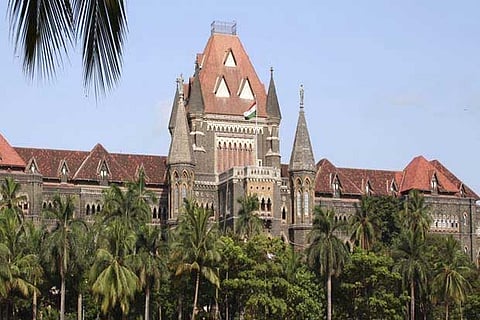

Mumbai
Prison inmates should not be denied the vaccine because they did not have an Aadhaar card, the HC said and observed that making the document mandatory for prisoners for the vaccine was an "important policy issue that would have pan-India ramifications".
A bench of Chief Justice Dipankar Datta and Justice G S Kulkarni raised the query after it was informed that several prisoners were missing inoculation due to lack of a valid Aadhaar card.
The bench was hearing a public interest litigation (PIL) taken up suo motu (on its own) on containing the spread of COVID-19 in prisons across Maharashtra.
The court said as per common sense, an Aadhaar card is required for getting the vaccine to help collate data and keep track of those getting the vaccine shots.
"However, given that the vaccine was the surest and most cost-effective way of containing the spread of the virus, inmates must not be denied the vaccine because they did not have an Aadhaar card," the high court said.
"If the Aadhaar card is coming in the way, then let Aadhaar registration camps be organised then and there (in prisons or vaccination centres for inmates) and such cards be issued," the bench said.
It directed Advocate General (AG) Ashutosh Kumbhakoni, who appeared for the state government, to discuss the issue with the Centre''s counsel, Additional Solicitor General Anil Singh, and inform the HC of their stand by May 4.
Making the Aadhaar card mandatory for prisoners for the vaccine was an "important policy issue that would have pan-India ramifications", the high court said.
The bench also said it would issue directions to the state high power committee (HPC), constituted last year, to help decongest prisons in the wake of spread of the viral infection, to meet more often and supervise if its recommendations were being implemented.
The court's direction on the HPC came after Prof Vijay Raghavan of the Tata Institute of Social Sciences, and senior counsel Mihir Desai, the amicus curiae in the case, told the HC that the panel had met last in April 2020.
They also informed the court that prisons continued to be congested despite the committee's guidelines on granting emergency parole and temporary bail to eligible inmates.
Advocate Desai told the HC that the Taloja prison, which had 2,500 inmates in 2020, currently houses 3,500 prisoners.
Letting inmates out temporarily as per the high power committee's guidelines should be an ongoing process, he said.
To this, AG Kumbhakoni said the prison authorities were letting eligible inmates out as per the guidelines.
Currently, there were 26 inmates across 47 prisons in the state, who were eligible for emergency parole, he said, adding that most of them did not wish to leave.
"Some feel safer inside the prison. Some of them do not have the resources to sustain outside, and still others have few months of sentence left and so they want to complete their entire sentence in one stretch and then leave the prison finally," Kumbhakoni said.
Professor Raghavan informed the HC that trial courts were not considering the undertrial review committee''s suggestion on letting undertrials out on temporary bail.
While the 47 prisons in the state had a capacity to house 23,000 inmates, they currently had 35,000 inmates, he said, adding that this was the situation after 10,000 prisoners were released in the last one year.
AG Kumbhakoni, however, said the suggestion should be taken with a "pinch of salt".
"Contrary to popular belief, it is easier to control convicts than it is to control undertrials. While most of the convicts are obedient and want to complete their sentence, most undertrials keep thinking of ways to run away from the prisons," he said.
The court further directed the state government to distribute adequate masks and sanitisers among the prison inmates and staff.
It also asked if it was possible to hold vaccination camps inside prisons instead of getting the inmates outside and making them stand in long queues for inoculation.
Kumbhakoni said the state had got vaccination teams inside three prisons successfully. But, it had halted the system presently due to lack of vaccines and trained staff.
"We will resume once the vaccine stocks and staff are made available. We also feel it is safer to inoculate the inmates inside prisons," Kumbhakoni said.
The court also noted that the prisons did not have adequate medical staff.
For instance, in the Taloja prison, there were only three medical personnel or doctors, all of whom were practitioners of Ayurveda.
The court noted that the situation was similar in other prisons also.
The HC asked the state to look into the issue and get back to the court on May 4, the next date of hearing.
As per the submissions made during the day's hearing, currently 244 inmates and 117 prison staff have tested positive for coronavirus.
At least 64,000 RT-PCR and rapid antigen tests have been conducted on prisons inmates so far, of which, 4,000 were conducted over the last week.
Visit news.dtnext.in to explore our interactive epaper!
Download the DT Next app for more exciting features!
Click here for iOS
Click here for Android